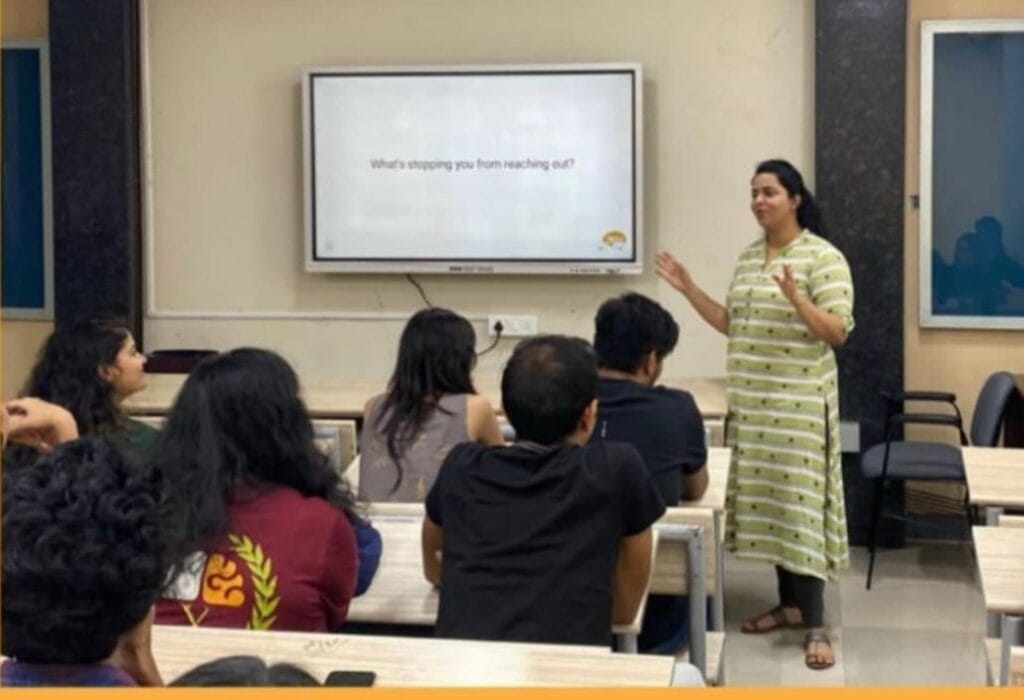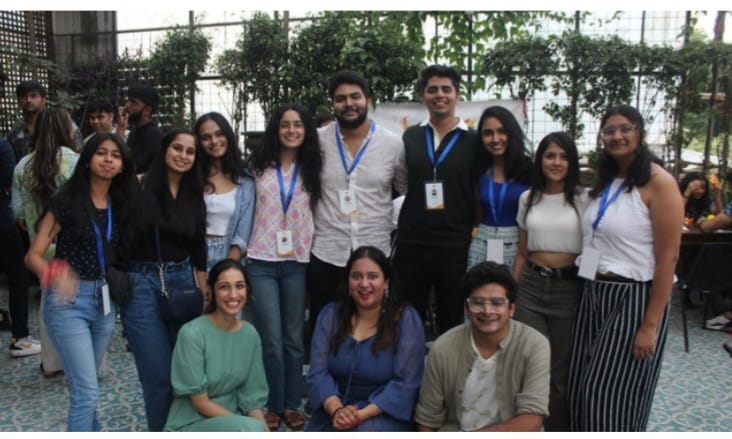It’s October, and examinations are in full swing for school and college students as they prepare under immense pressure. A crucial aspect during the month is students’ mental health, and interestingly, World Mental Health Day is observed every year in October to raise awareness about mental healthcare.
According to an older survey by the Tata Institute of Social Sciences (TISS), over 40% of Mumbai students suffer from anxiety, depression, and related mental health issues. Furthermore, the National Crime Records Bureau (NCRB) records show that Mumbai had the highest number of student suicides in India in 2019, reflecting growing concerns about students’ mental health.
The recent spike in suicide cases at Kota this year has been alarming as it’s the city’s highest (24 cases) in nearly three decades since Kota’s rise as India’s largest coaching hub. Mumbai, a city witnesses student migration in large numbers for higher education each year and the stressors are affecting the students, like they are in Kota.
What is stressing our students?
Often, apart from performance pressure, homesickness, peer pressure, and adaptability issues are significant stressors for students.
This makes it difficult for youth to cope with their emotions, especially in a city like Mumbai, which is fast-paced and highly demanding in every aspect such as competition, finances, socialisation and so on. This leads to social isolation, making depression a significant student concern.
Moreover, the stigma surrounding mental health persists across cities in India, and students cannot reach out for help. Not to mention the need for experienced and trained counsellors in schools and colleges, as students are left to fend for themselves.
With a massive population of 1.4 billion, India only has 3,372 clinical psychologists registered with the Rehabilitation Council of India till July 2023. Even if there are more, who are not centrally registered, there is a clear gap between the requirement and availability.
Read More: Effects of Urbanisation: A look at marginalised women’s mental health
Mental healthcare: Need of the hour for students
On the cusp of adulthood, the lack of a homely environment and life in hostels and PGs takes a toll on students as they juggle academics and parents’ expectations. In such cases, it’s essential to understand, empathise, and listen to students when they show vulnerability.
Colleges and coaching institutes in India have ramped up efforts to make college and classes fun with cultural activities. These activities may work as a de-stressing mechanism for some students. However, many students often single themselves out from these events because of the stigma associated with seeking help.
According to Dr. Harish Shetty, a Mumbai-based psychiatrist, counsellors in schools and colleges should reach out to students. “Any illness with a stigma associated with it needs reaching out. If there’s no stigma, students will eventually open up on their own and seek the doctor’s help.”
While parents, professors, and the administration may intend to help students, one mistake by them could cause more harm than good. In such cases, making healthcare accessible becomes crucial for the students.
With this mission in mind, Citta, a mental health organisation, was founded in 2020 to create an accessible and affordable mental healthcare platform for students and de-stigmatise notions associated with seeking help.
Read More: Mumbai civic body initiative to help school kids cope with mental health issues
Citta: Making mental healthcare accessible for students
Citta India was established in February 2020 by Neelika Chakrabarti and Sagar Menon, with the tagline “You’ve Got This.” A mental health organisation based out of Mumbai, it provides mental healthcare services to students across India.
Citta’s primary role as a mental health organisation is to bridge the gap between students and professional help by making mental healthcare resources more accessible and affordable by de-stigmatising mental healthcare for young students facing academic pressure. The organisation does this through one of its main platforms, Citta Connect.

Citta Connect is the organisation’s tech-enabled service where students can request to communicate with a professional. Citta responds to the student’s requirement within 72 hours. The gap between students and professional help is bridged based on the student’s preferences for affordability, online/offline sessions, and language to access mental health services. The cost of sessions for students ranges between Rs 300 to Rs 700, which is far lesser than average therapy costs. Affordability is a major factor for students to continue the therapy.
Apart from furthering its aim to make mental health more accessible, Citta also has another initiative, the Peer Counselling Program. The initiative trains psychology students by equipping them with basic counselling skills. Over 40 students have been trained so far.
Citta has successfully hosted over ten mental health workshops across different schools, colleges, and corporates in Mumbai, including topics such as, ‘therapy awareness,’ ‘managing uncertainty,’ and ’emotional and mental well-being.’
Increasing outreach

Citta’s secondary activities include hosting live Instagram sessions with experts and curating informative social media posts on topics like managing stress and coping with anxiety and depression. The organisation also runs a podcast called “Mind It,” where expert psychologists discuss pressing issues and general mental health tips to help students.
So far, Citta has reached out to over 5000 students across 30 cities in India, connected over 900 students with mental health professionals, and sponsored over 600 therapy sessions. Citta has organised a few fundraisers previously to sponsor therapy for under-resourced and marginalised students and aims to further this mission of accessible mental healthcare for everyone.
We must remember that mental health isn’t a trend, and it’s not just for ‘certain’ people. It’s natural, and everyone has to deal with it. So, let’s talk about it because you’ve got this!
| 1. To Know More about our work, visit www.citta.org.in or @cittaindia on Instagram, Facebook, Twitter (X), and LinkedIn, or contact us via email – contact@citta.org.in. 2. To volunteer with us, you can reach out to – 9820038225 3. To connect to a Therapist, visit – https://www.citta.org.in/connect |